Was such a delight diving with Ram, it has been years when I last dove with him. Spent a few nights with him after some very cool "bonfire" night dives and he made it clear he wanted to share to everyone the wonders of Bonfire diving so here is a short intro on 'how to do it' by experiencing the method first hand patented to none other than the Ram Yoro.
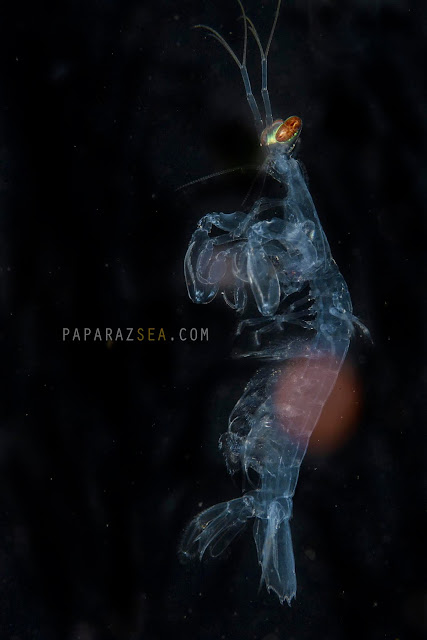 |
| larval stage Mantis shrimp shot just right in front of Ram Yoro's Tank station shot at 5m depth, 0100am, size of critter was around 2mm |
The bonfire method of diving may look simple, but there is a lot of science involved to it through many years of Ram doing it solo, which eventually amassed a following. while interestingly, he mentions he has been talking to a lot of marine scientists to know more about the behaviour of his captivating critters and eventually has been surprising them with his finds.
 |
| A Jellyfish devouring a juvenile fish slowly..as Ram put's it, such a slow brutal death... shot at 6 meters depth, 2300 hours, size around 2 inches |
The principle of bonfire is simple really, it's just planting a torch light at around 5M at the sandy portion of the reef and just wait for lots of tiny tiny critters to flood the "Bonfire" which serves as the lure to the would be prey of the critters you see posted here.
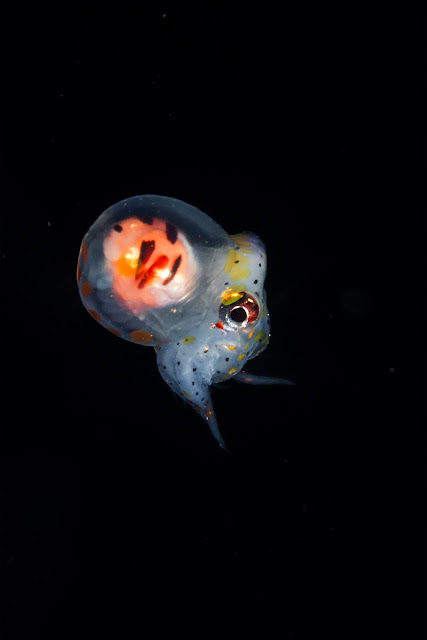 |
| The #cutestoctopus, shot at 8M depth, 2200 hours, Size: roughly 3mm |
Those who did night dives have sure to have experienced super tiny insect like critters gravitate towards their dive light while on a night dive which are actually what the larval stages of various fish species eat.
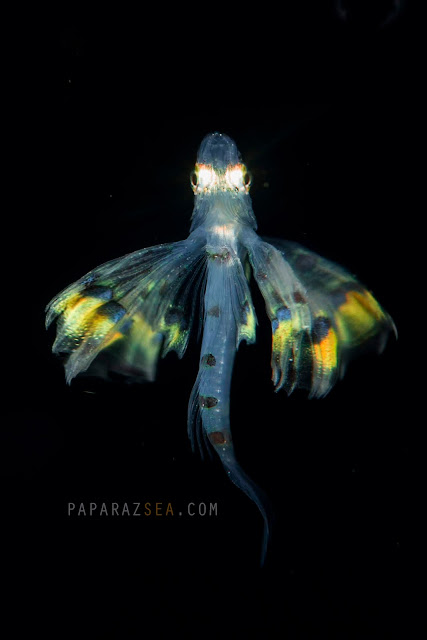 |
| A larval stage lionfish spreads its wings at around 5 mtrs depth at around 2200- size: half an inch |
The effective placement of your light (Main Bonfire) is usually a dive site where little current travels through and observed to be best done at muck dive sites.
 |
| A larval stage sea snail, also known as gastropods shot at around 5M depth, 2300 hours- Size- 4mm |
In Anilao, Janao Bay is one such place and with not much current and also a well known macro photographer dive site, the tiny larval stages of various marine wildlife thrive here and because of the serene conditions, this by default serves as a nursery to probably billions of larval stages of critters
 |
| larval stage Wonderpus, probably the rockstar of all larval stage critters combined. Was around an inch in size and appeared an hour past midnight. |
For photographers, you aim to shoot the would be predators surrounding the light emanating from the "bonfire". Wait patiently and one of the shared images may come to join the critter buffet.
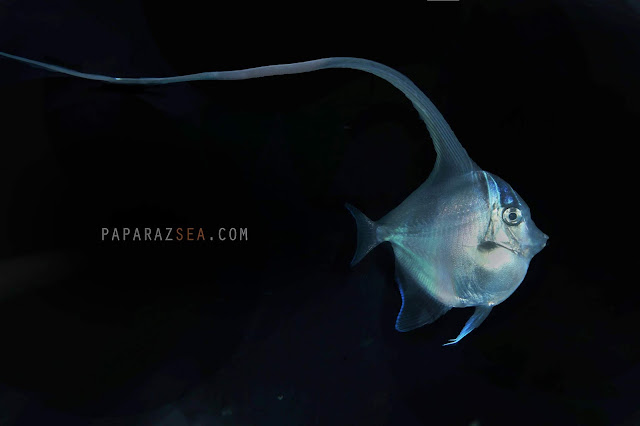 |
| Juvenile Moorish Idol, 18m find sporting a super long dorsal fin |
You shoot them outside the column of light, not within as this will be filled with the pesky tiny tiny prey.
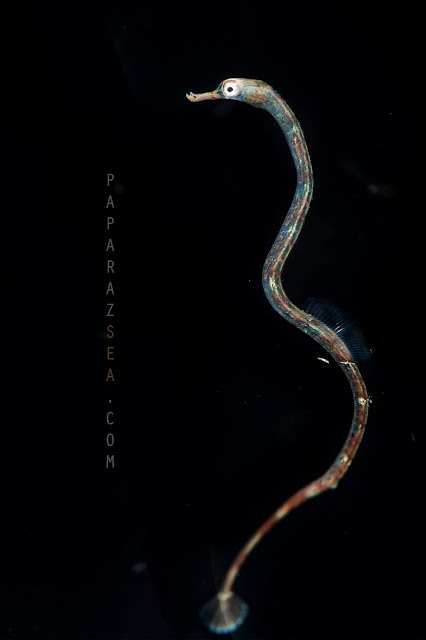 |
| larval stage Pipefish, shot at 3M roughly 4mm in size, appeared at around 2200 hours |
Getting the most prolific results as shared by Ram is about studying the tide charts, so it's not necessarily about diving so late in the night or during the wee hours of the morning...Its about jumping in when the tides are shifting, and that's when the bountiful larval stage subjects come out to play or rather..feed
 |
| a larval stage pelagic squid, 2mm in size awaits it's next meal, just waiting outside the bonfire light zone |
It's hard to imagine how the Bonfire experience goes through words alone, but it's totally different then any dive you've probably done.
It's not for everyone but definitely for divers who are into underwater photography and trust me, once you've done it, you never want to go back to your traditional daytime shooting macro sojourns.
 |
| Happy Meal |
It's not for everyone but definitely for divers who are into underwater photography and trust me, once you've done it, you never want to go back to your traditional daytime shooting macro sojourns.
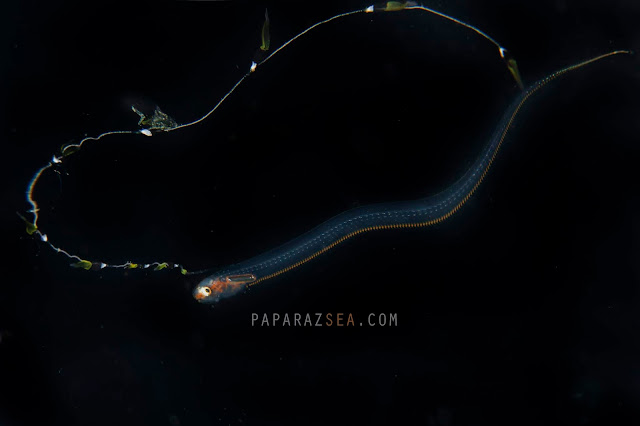 |
| Holy Grail bonfire/blackwater critter, the larval Pearlfish |
nothing follows...
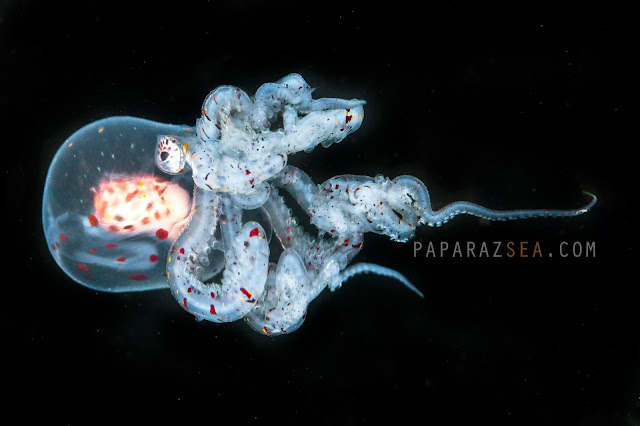
0 Komentar